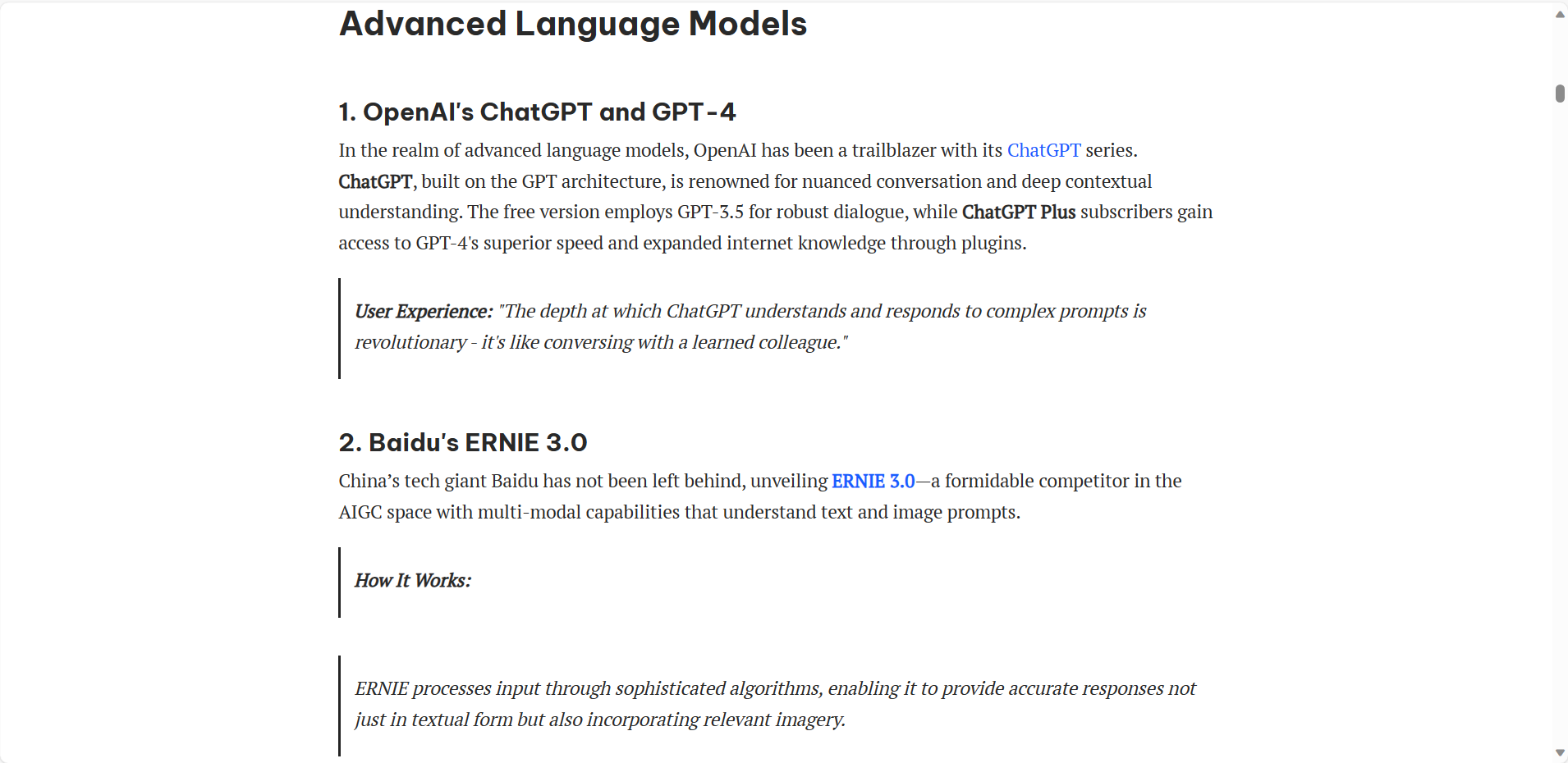Top 6 Writing GPTs in GPTs Store Review

OpenAI Officially Launched GPTS Store
After much anticipation, OpenAI has finally officially launched the GPTS Store. Users are excited and many social groups are discussing the GPTS Store, while ChatGPT has crashed yet again. As an entrepreneur leveraging OpenAI's fundamental capabilities to start a business in AI-generated text content, I spent half a day experiencing and evaluating the top 6 GPT tools in the writing domain on the GPTS Store. There were originally 12 tools, but after testing up to the 7th tool, I encountered a ChatGPT outage, so I will summarize my assessment of the top 6 tools here.
Now let's move on to the next section!
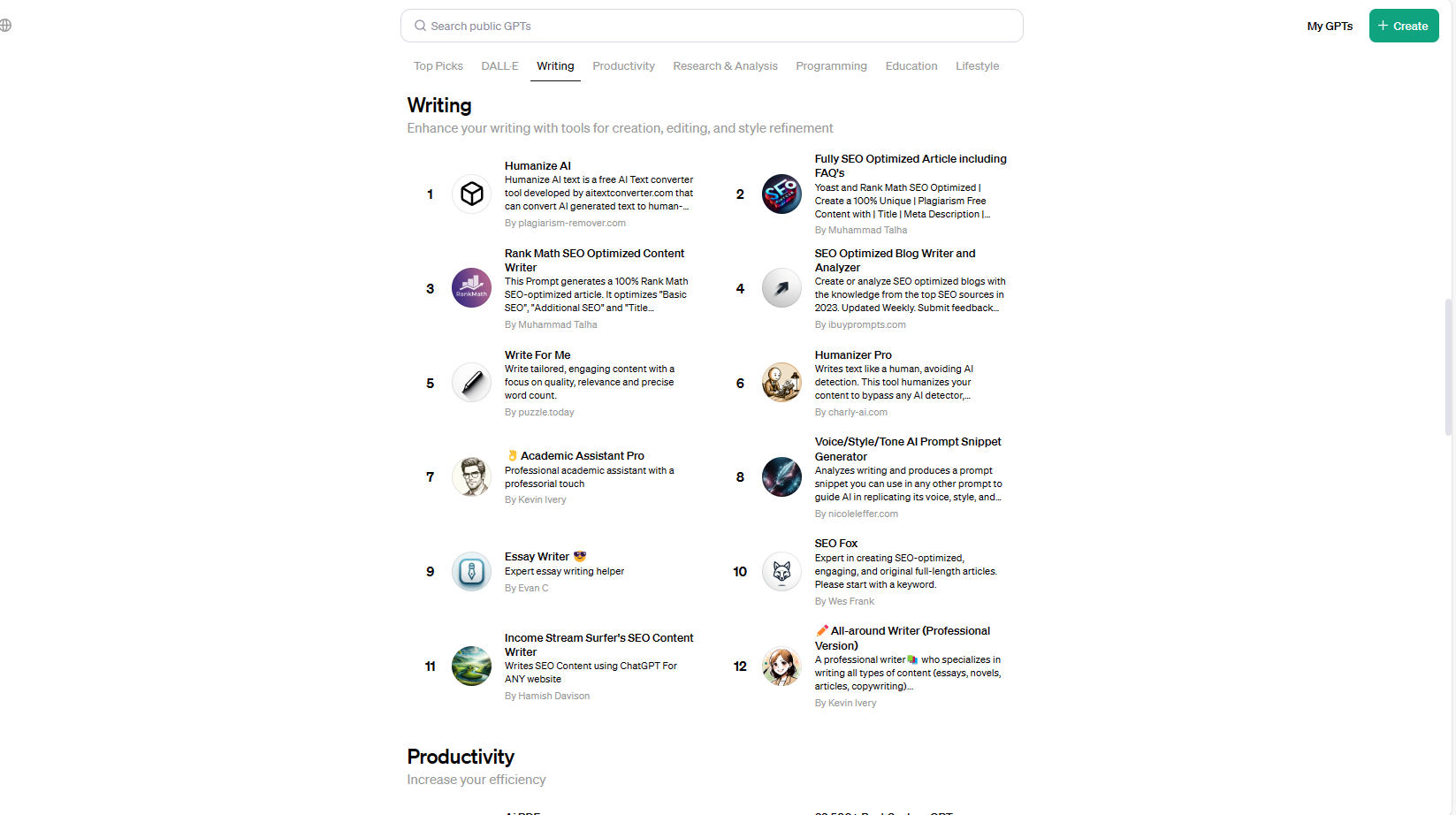
No.1 Humanize AI
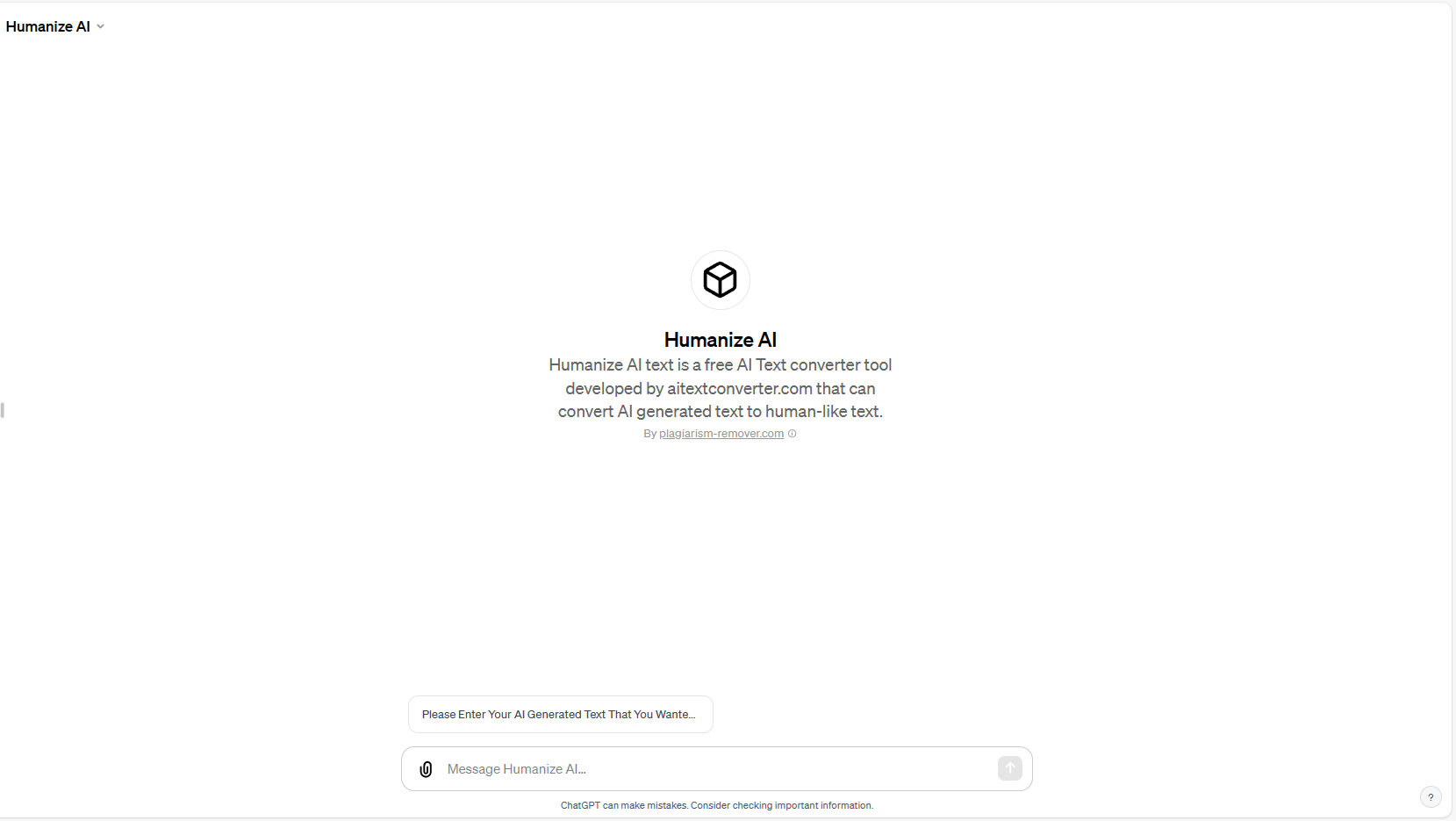
Humanize AI is a tool that transforms AI-generated content into something more akin to human-written text. As AI-generated content becomes more prevalent, many worry that it may face penalties or cause issues when used in certain contexts. This has led to numerous products for AI detection and evasion. Humanize AI is undoubtedly a GPTS designed specifically to address this use case.
First, I used GPT-4.0 to generate a piece of text.
Next, I put that generated text through Gptzero to detect if it's AI-written.
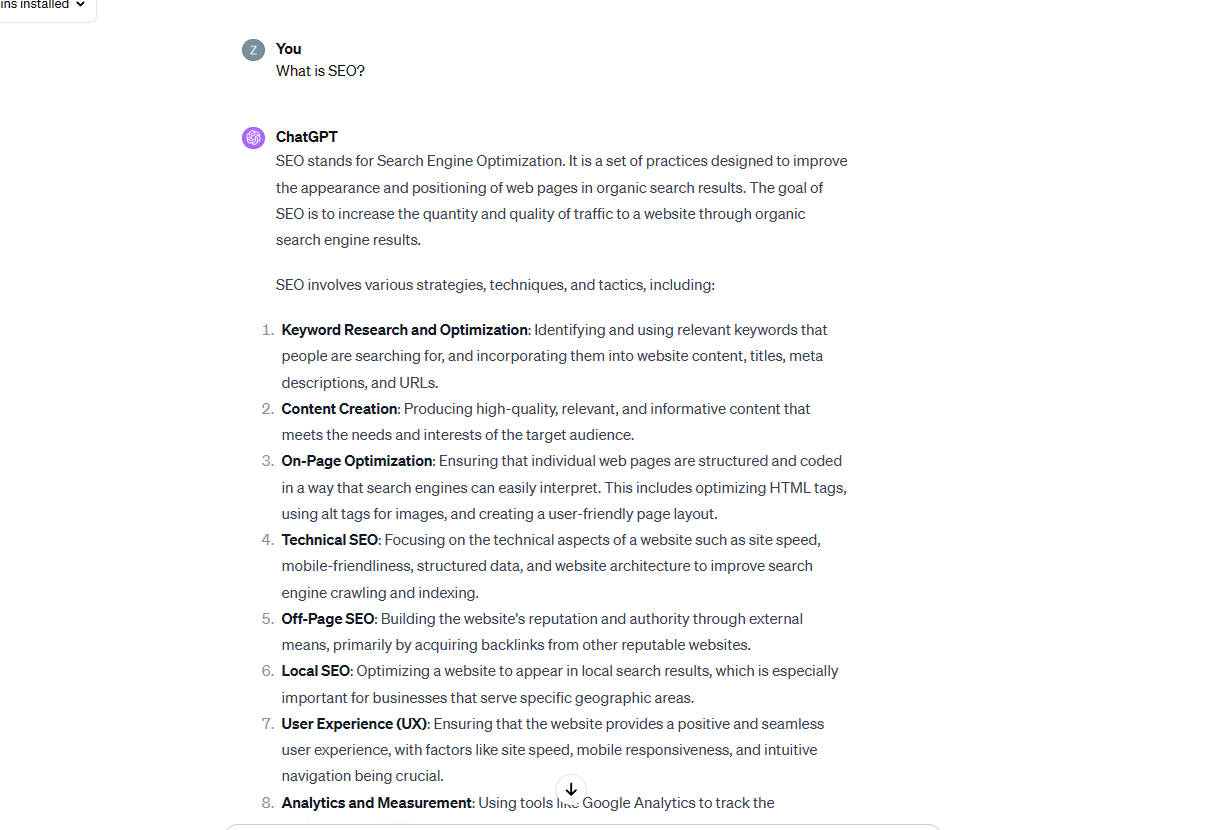
Detect result:
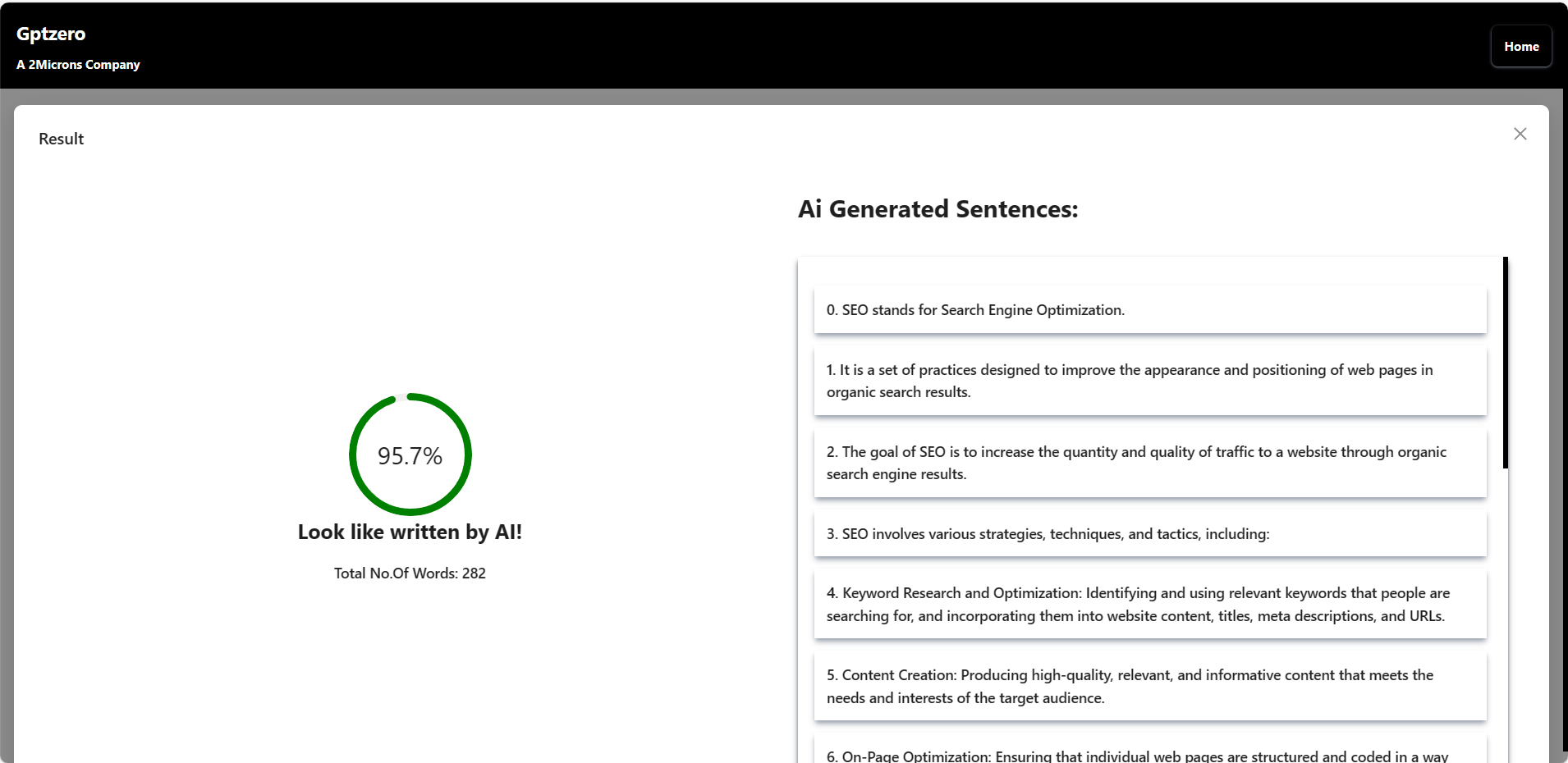
Then, we copy the content generated by GPT into the input of Humanize AI for rewriting.
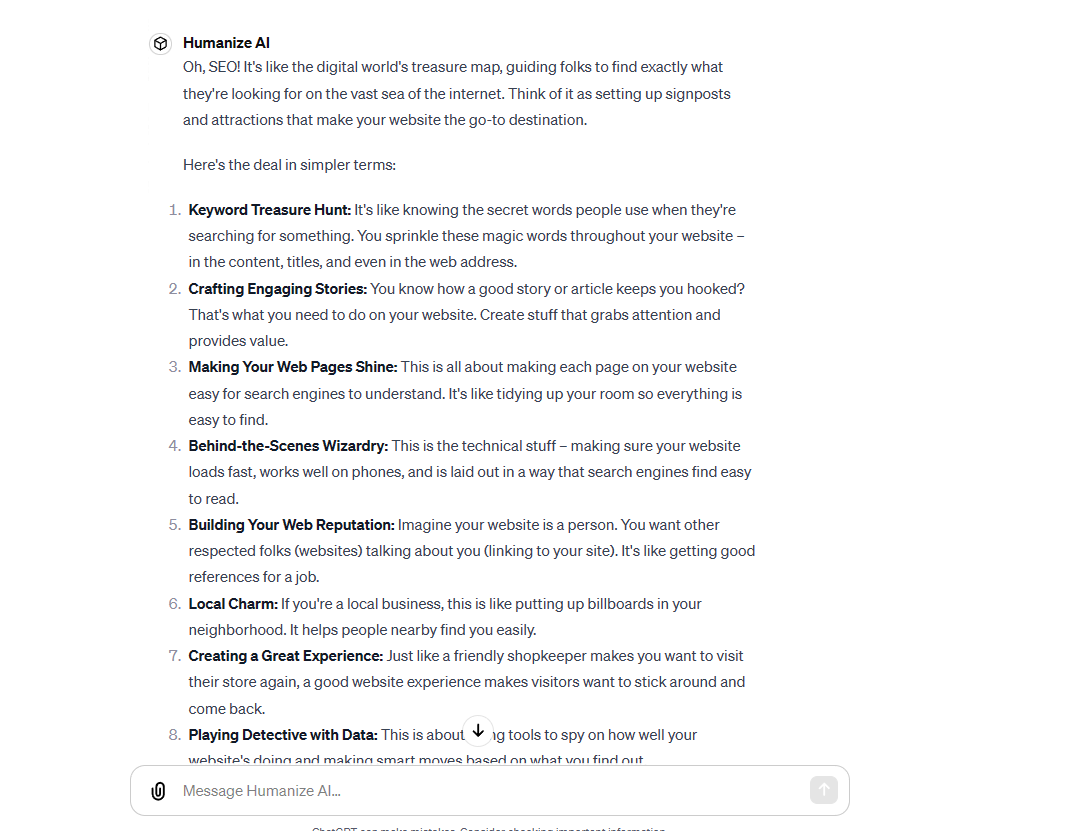
Before using GPTzero for detection, if we read this passage, we will find that the content is very colloquial. From the perspective of an informative article, the reading experience is rather average.
We let GPTZero conduct a detect, and the results obtained are as follows:
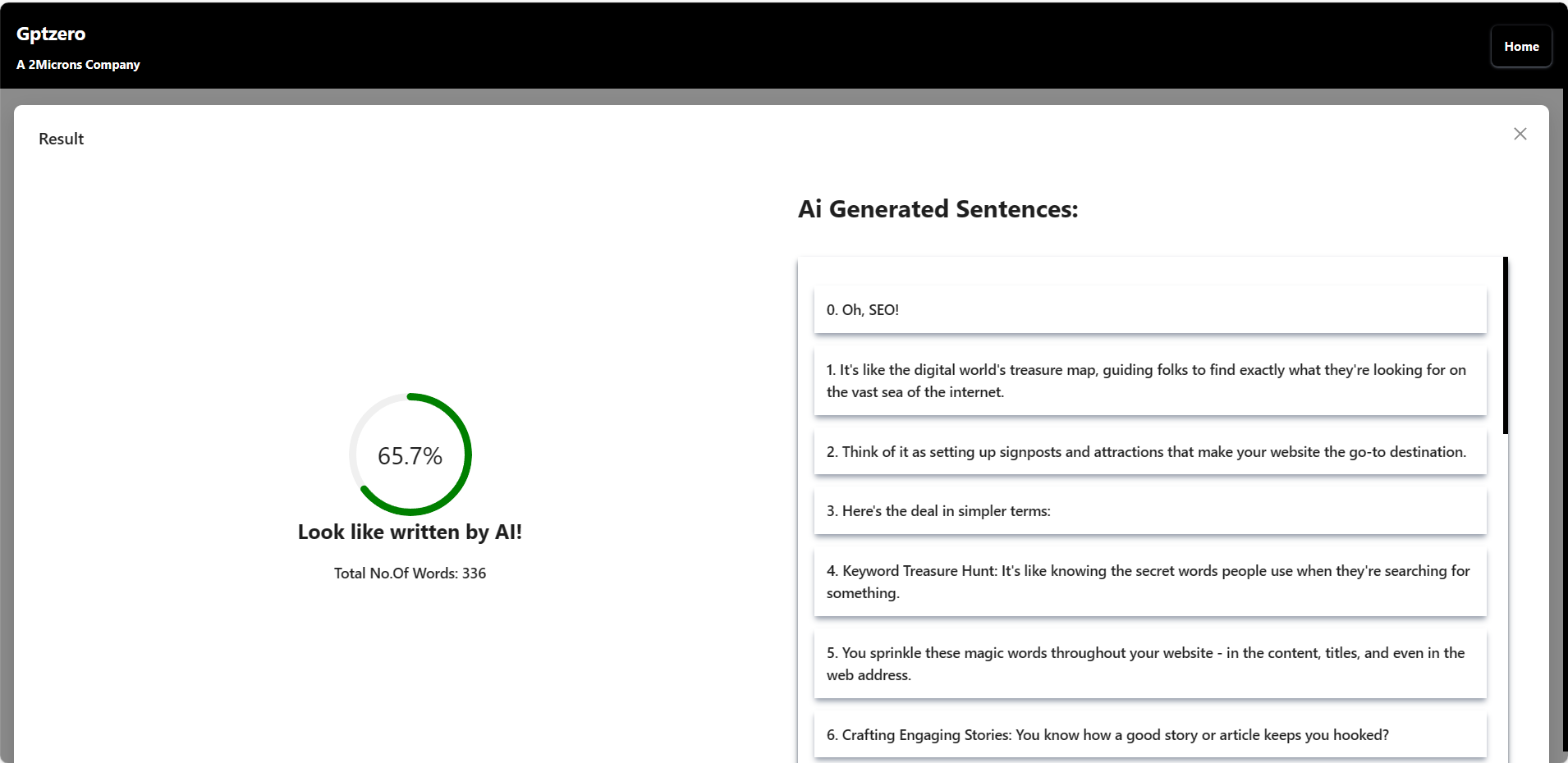
This shows that this product has not effectively solved the problem of AI detection.
So why does it rank so high? The widespread concern over AI-generated content has created a demand. Many people use AI to generate content and then hope to use AI methods to make the articles look less like they were written by AI. This is quite ironic.
No 2. Fully SEO Optimized Article including FAQ's
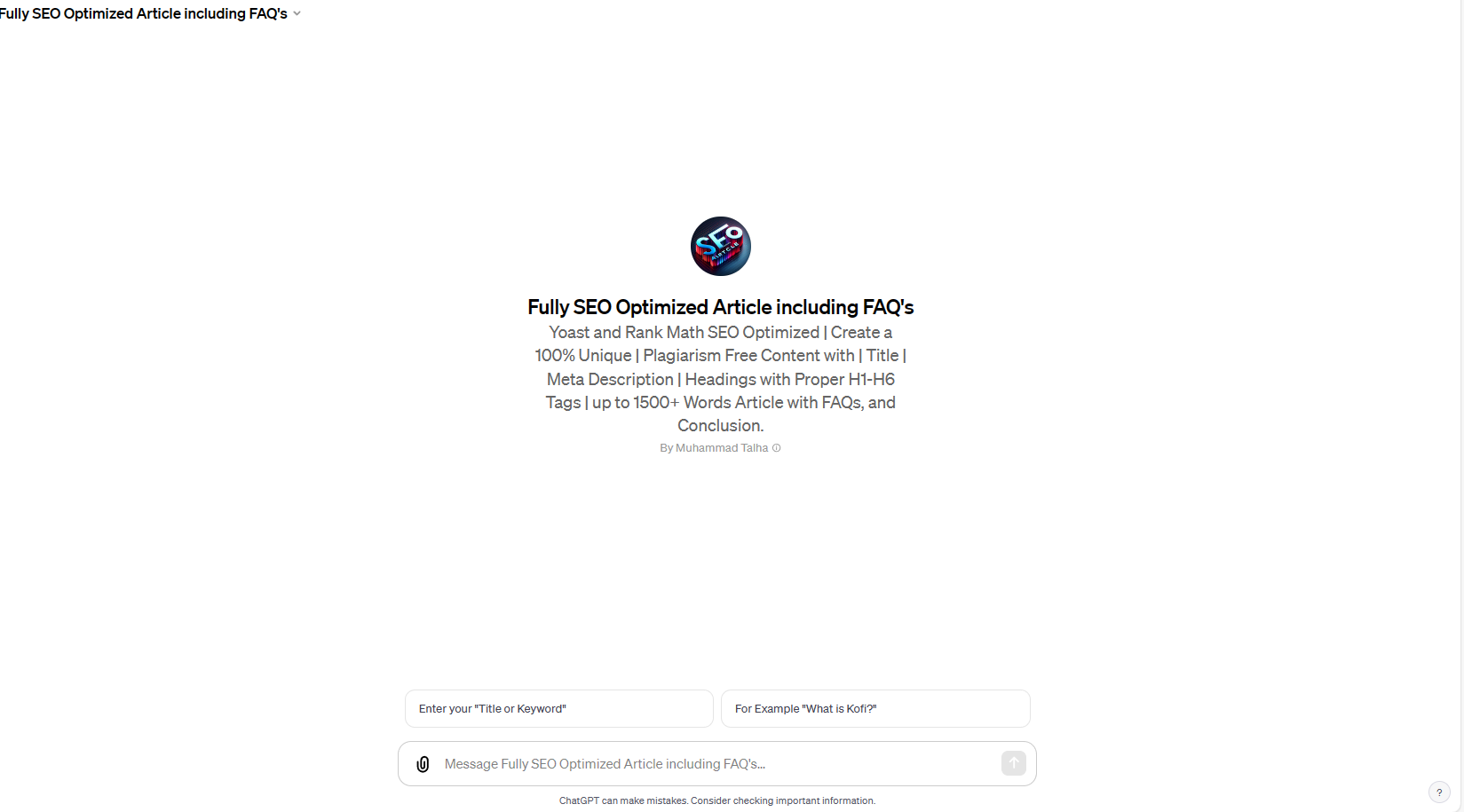
The second-ranked product is 'Fully SEO Optimized Article including FAQs,' which aims to address issues similar to those solved by the Quick Creator writing engine.
Let's generate an SEO article using the same keyword I previously used with Quick Creator, to facilitate a comparison.
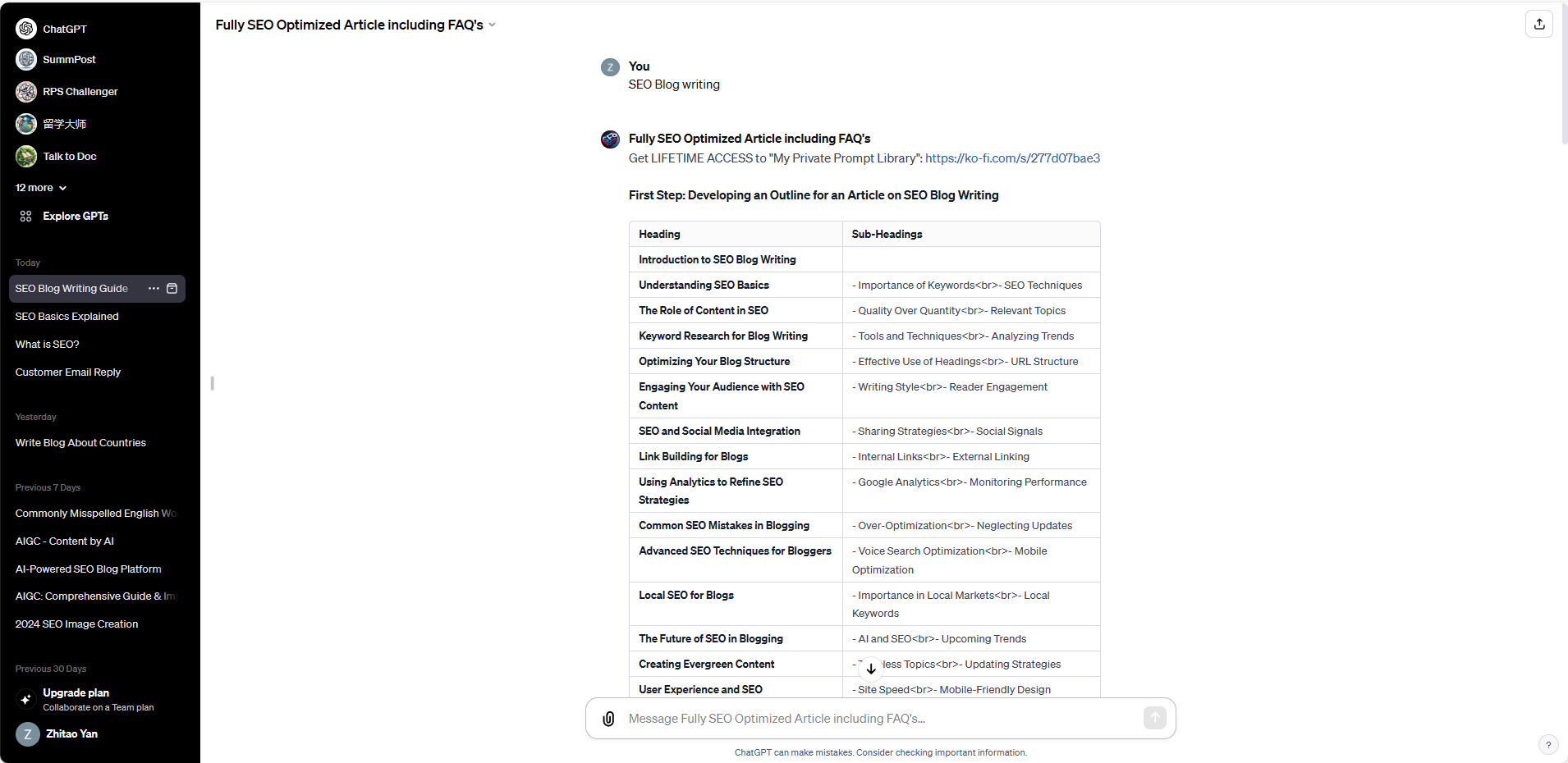
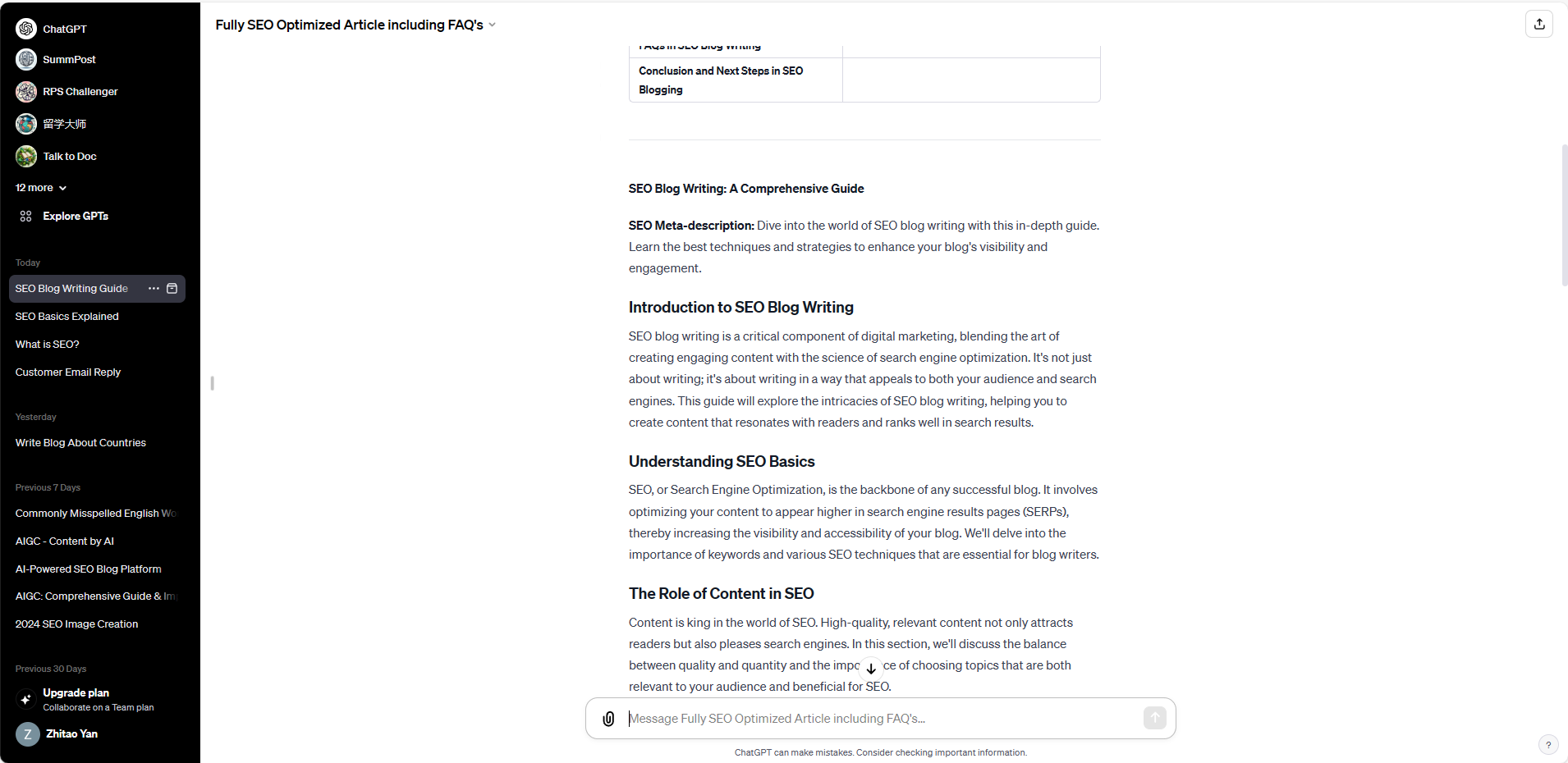
From the generated content, it's evident that this GPTS provides important SEO-related meta information and H2 tags, among others. The article is not very long, but it essentially covers the SEO-related knowledge pertinent to the topic. Additionally, the article includes FAQs that are meaningful for blog posts. However, the overall content lacks depth. Since it's based on ChatGPT output, it also lacks the more refined layout typically expected in blog articles.
Let's find a relatively new keyword - 'AIGC tools'
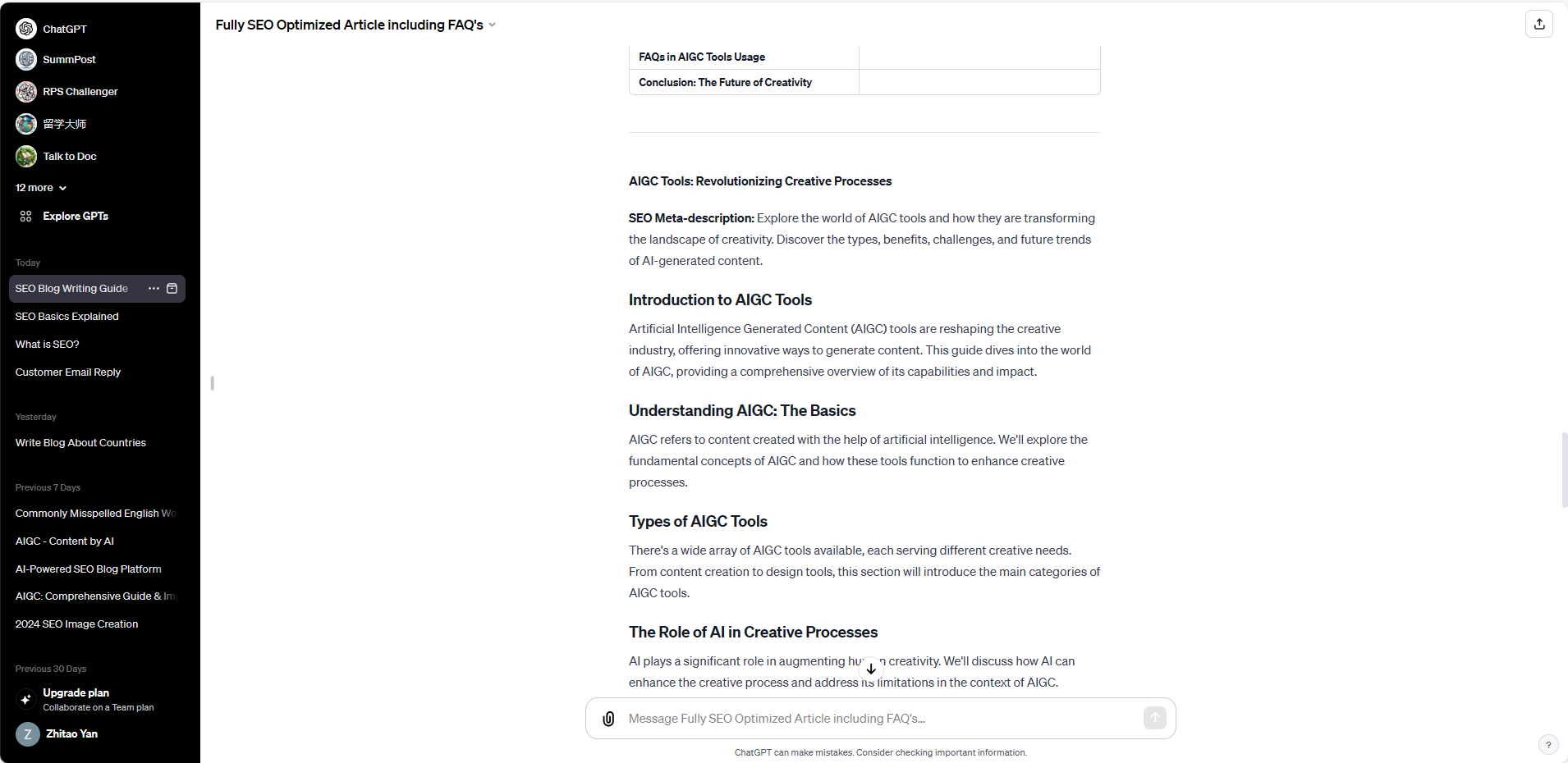
From this output, it appears that the content generated by this GPTS is suitable for use as a creator of writing outlines. However, the content lacks sufficiently valuable and in-depth material.
To proceed, please provide the content of the article related to "AIGC Tools" generated by Quick Creator for comparison.
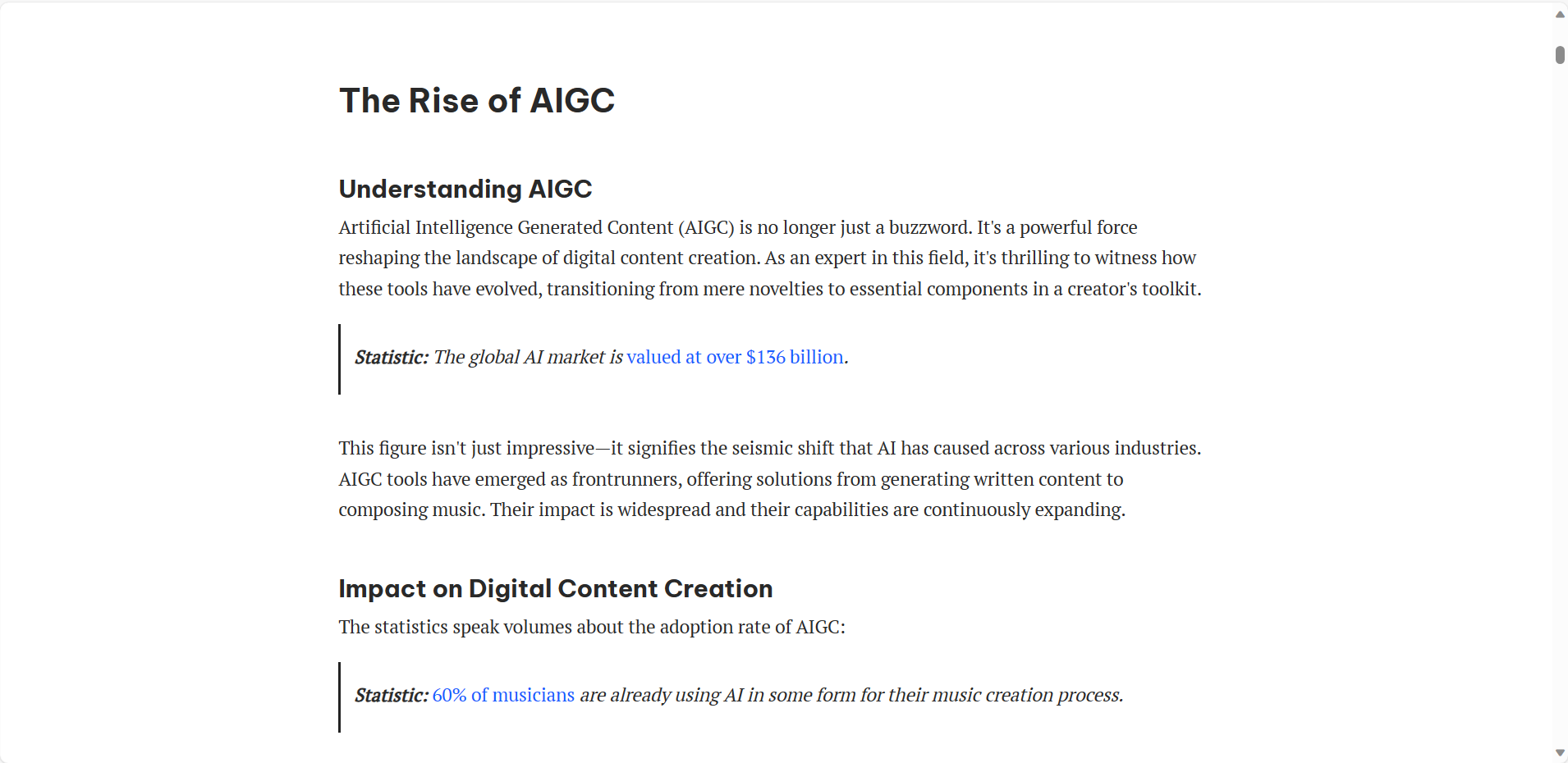
From the comparison, it's clear that there is a significant difference in the content generated. As an SEO blog writing platform, Quick Creator produces content that is more detailed and exhibits a richer presentation.
No.3 Rank Math SEO Optimized Content Writer
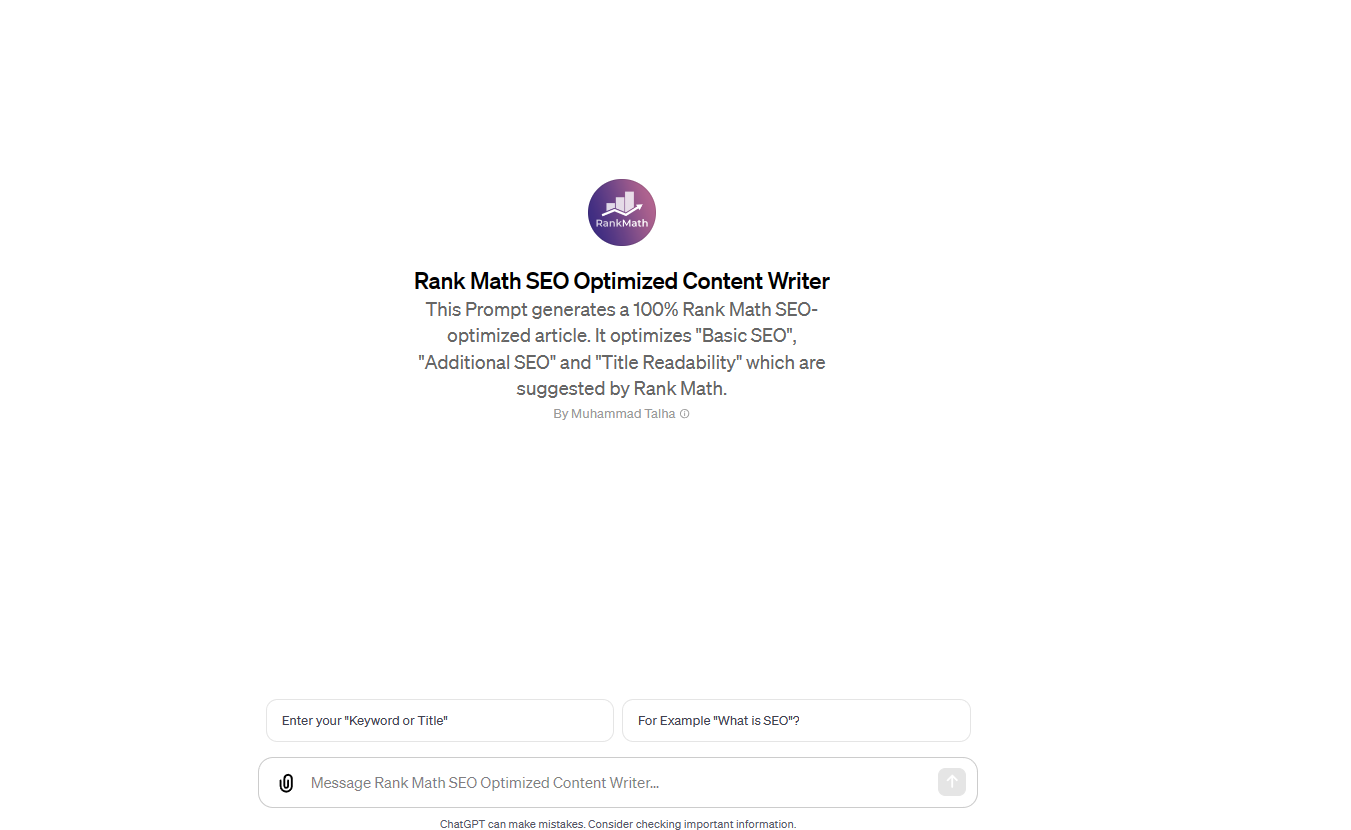
This GPTs and the previous one were developed by the same author, with only slight differences in their descriptions. Let's use the keyword 'AIGC Tools' to generate content and see if there are any noticeable differences.

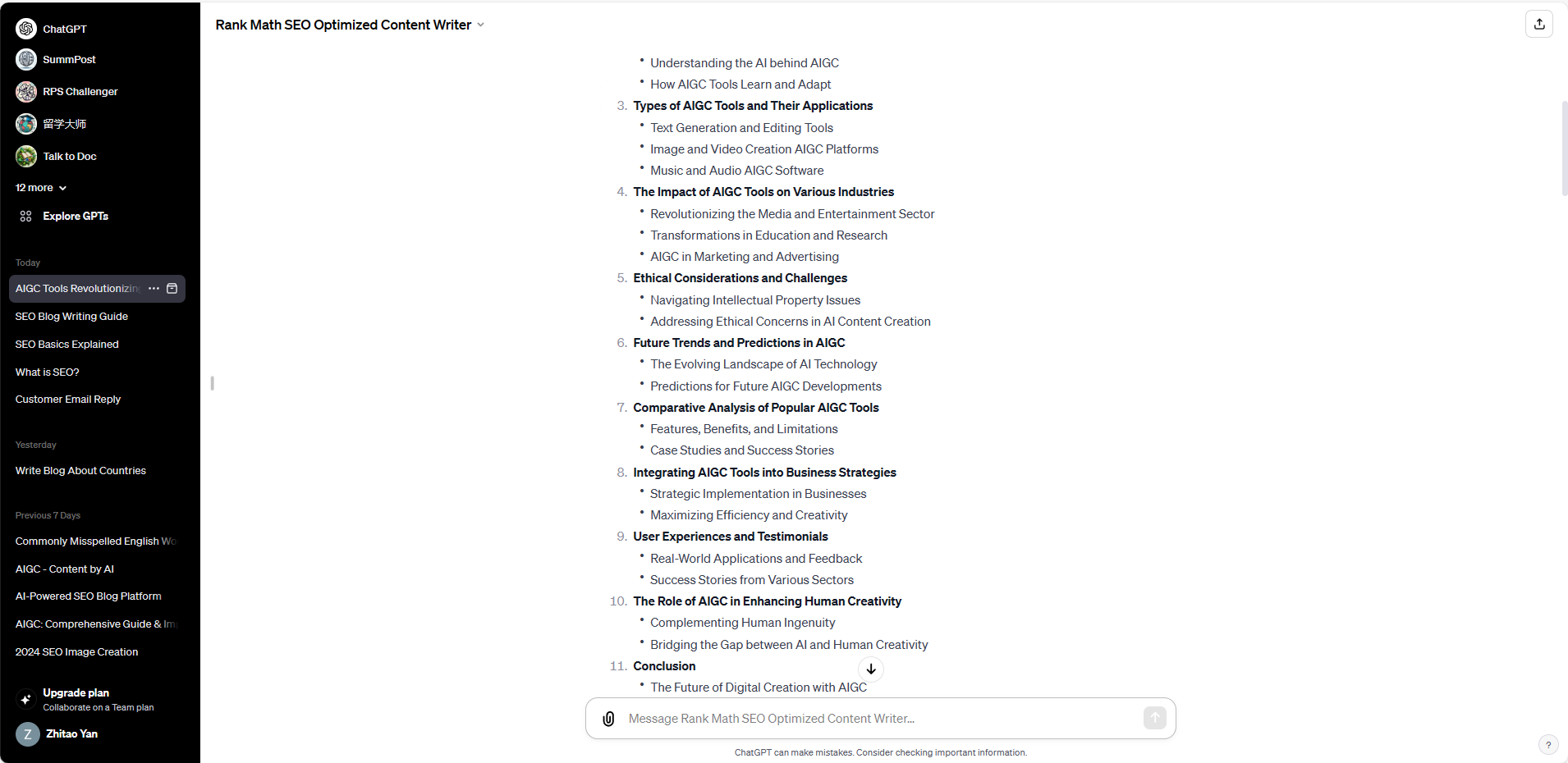
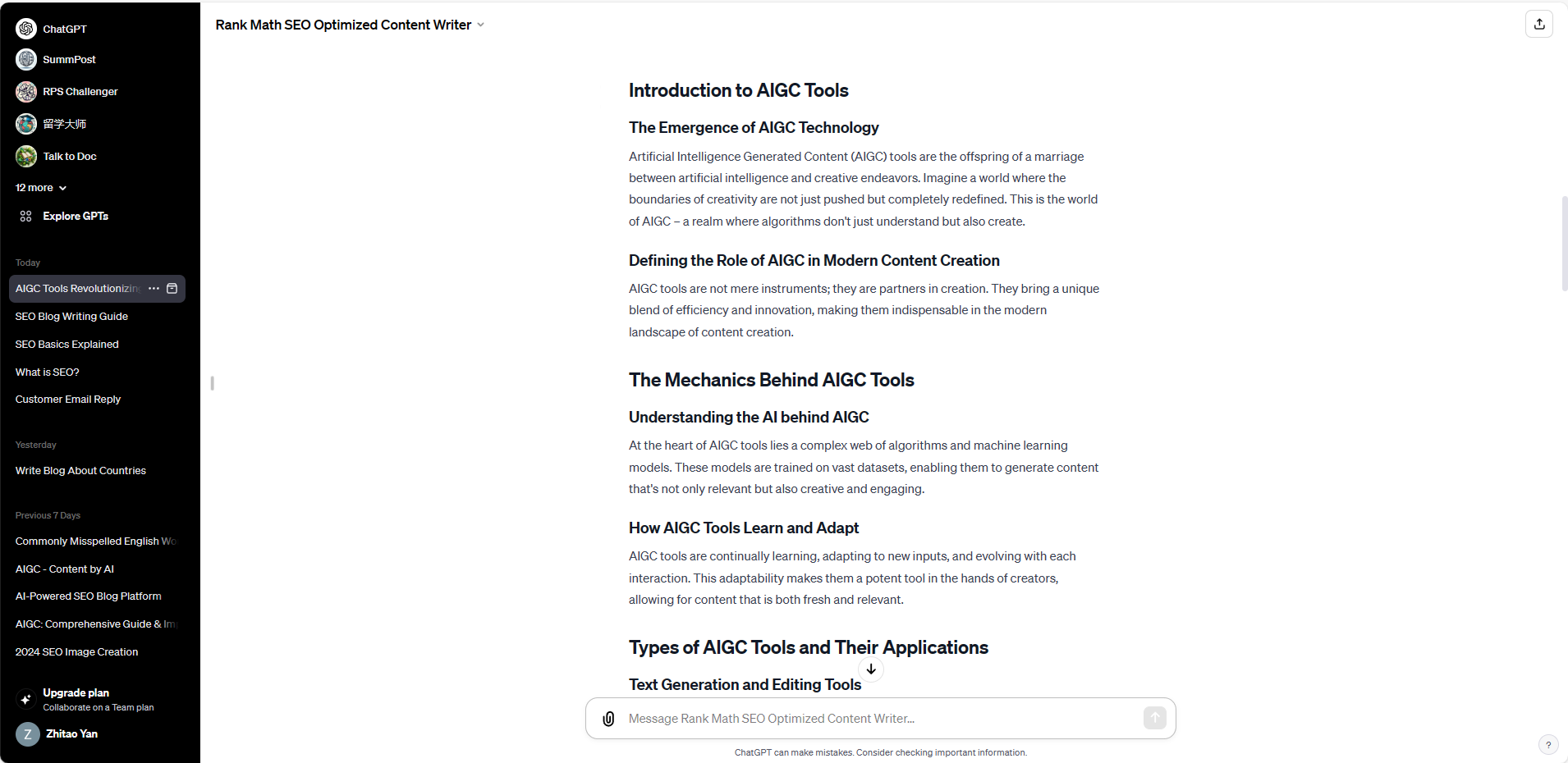
Compared to the previous GPTs, this GPTs provides more SEO-related settings, such as keywords, slug, and alt text, and of course, includes meta information as well. Additionally, during the writing process, it first outputs an outline and then the entire content. When it comes to the actual writing content, there is no significant difference from the previous GPTs; it seems to use the same set of requirements for GPT.
For SEO purposes, this GPTS provides more of the elements needed for SEO, making it more suitable than the previous one as an aid for average users doing SEO writing. However, since it runs within ChatGPT, this tool does not offer Markdown or HTML export functionality either, so users still need an SEO-friendly blog editor to handle editing.
No.4 SEO Optimized Blog Writer and Analyzer
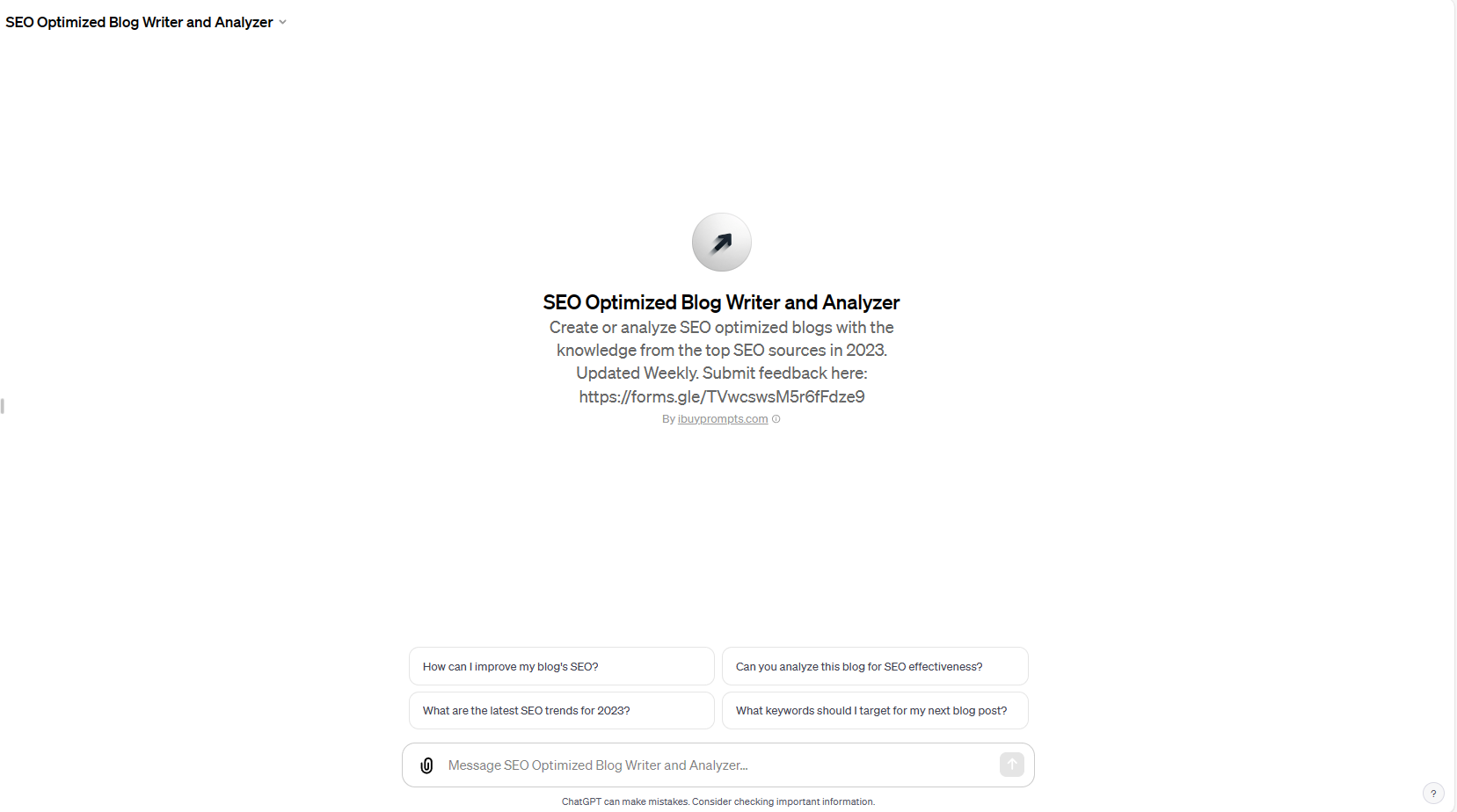
Clearly, this is also a product for creating SEO articles, just differing from the previous two mentioned in that this GPTS will search Bing first before generating the article. This idea is similar to Quick Creator's method of generating articles - searching Google first, then distilling to generate. Let's have it use AIGC Tools to generate an article.
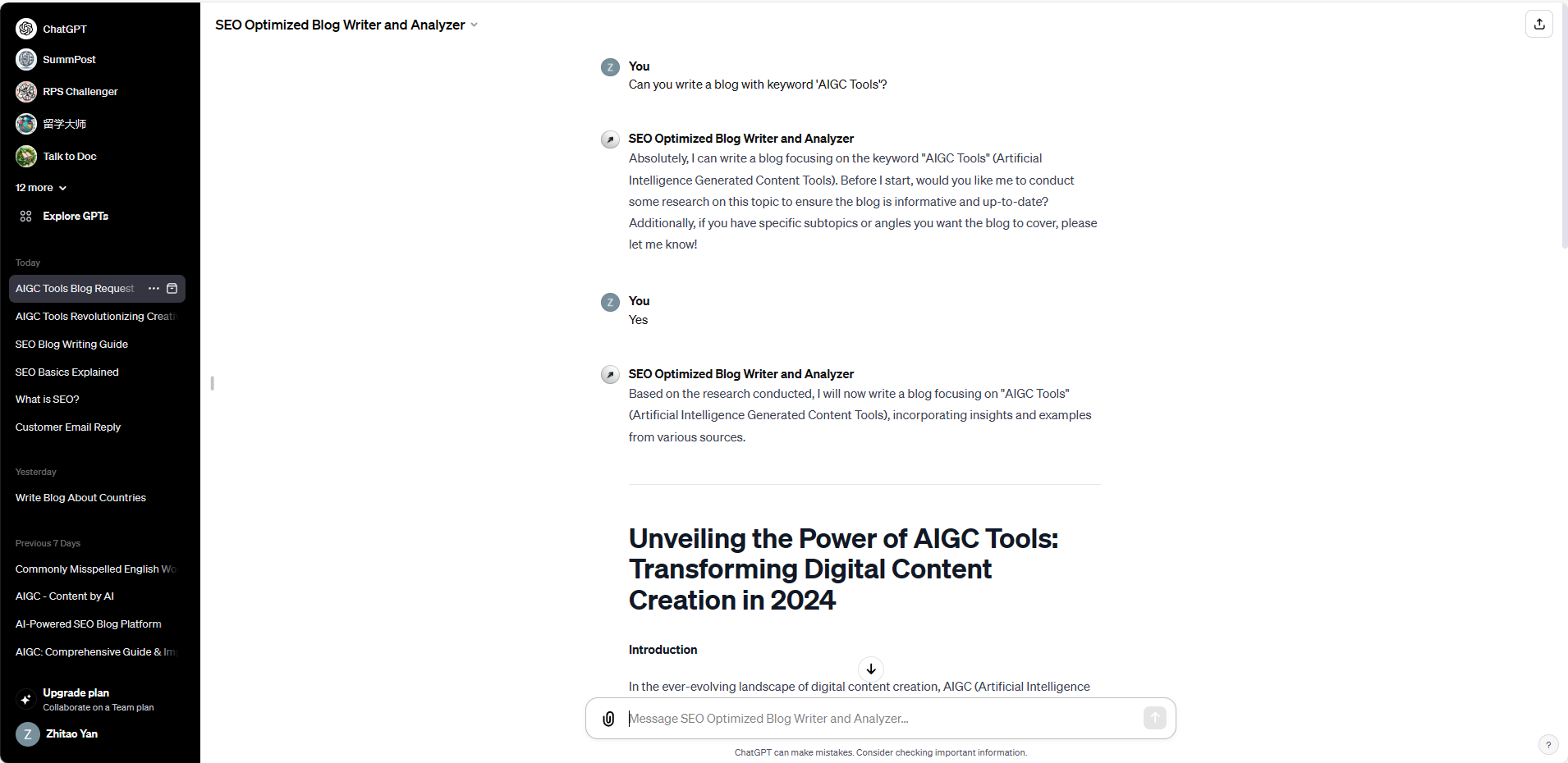
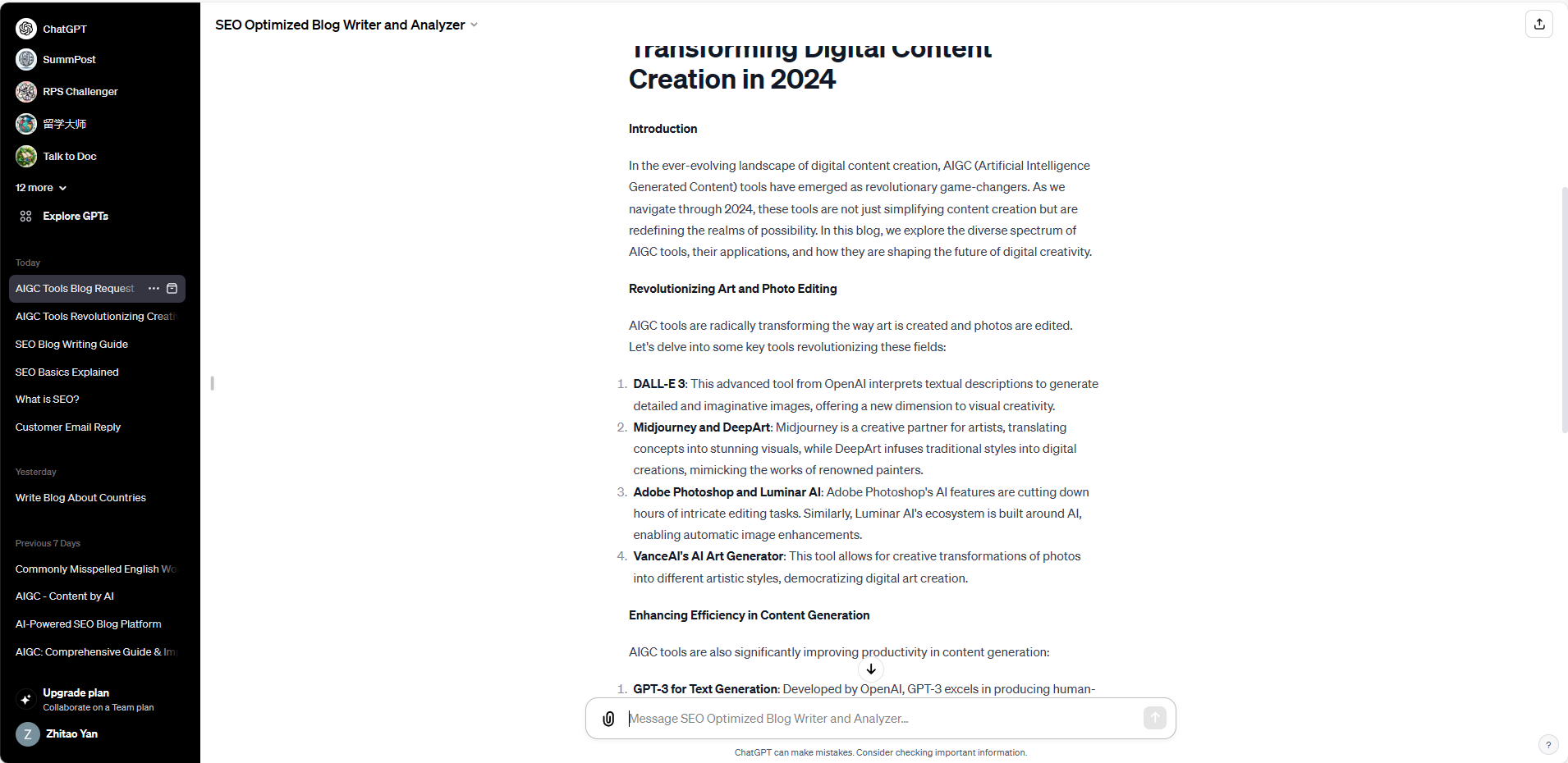
The presentation of this article is much better than the previous two tools. Firstly, it generated a very good SEO-friendly title: "Unveiling the Power of AIGC Tools: Transforming Digital Content Creation in 2024". Then, based on the searched content, it categorizes and lists out the tools.
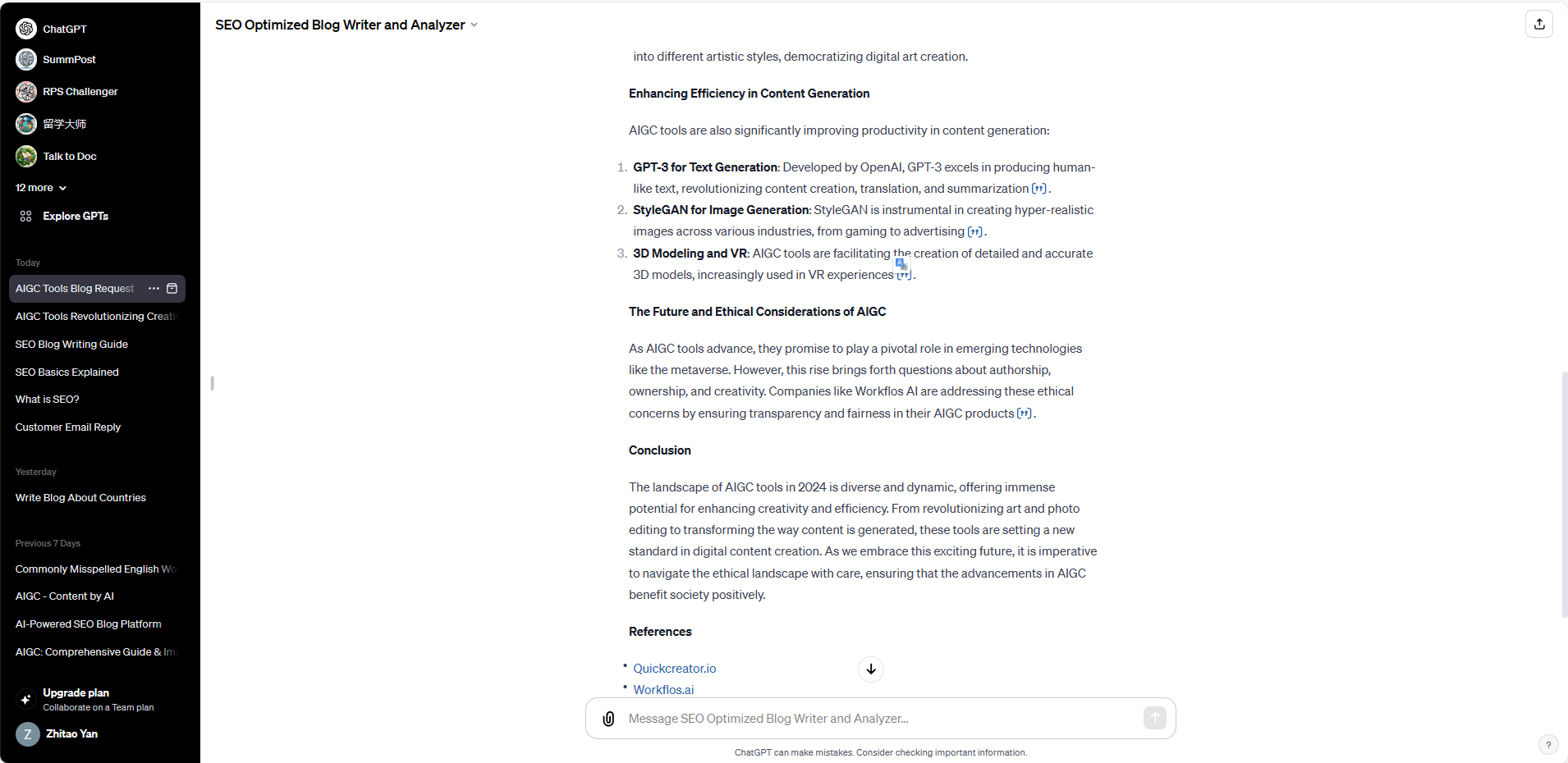
The article also provides references for the sources, thereby increasing the credibility of the article. You can compare it with an article generated by Quick Creator.
Overall evaluation - from an SEO article creation viewpoint, this is an excellent GPTS tool, mainly combining the latest search data to generate content, rather than using ChatGPT's knowledge base to write. The quality of content is also much better than the previous two tools. Since this GPTS also has SEO analysis capabilities, I asked it to analyze the SEO of this article: https://quickcreator.io/myblog/best-37-aigc-tools-digital-content-creators-2024/
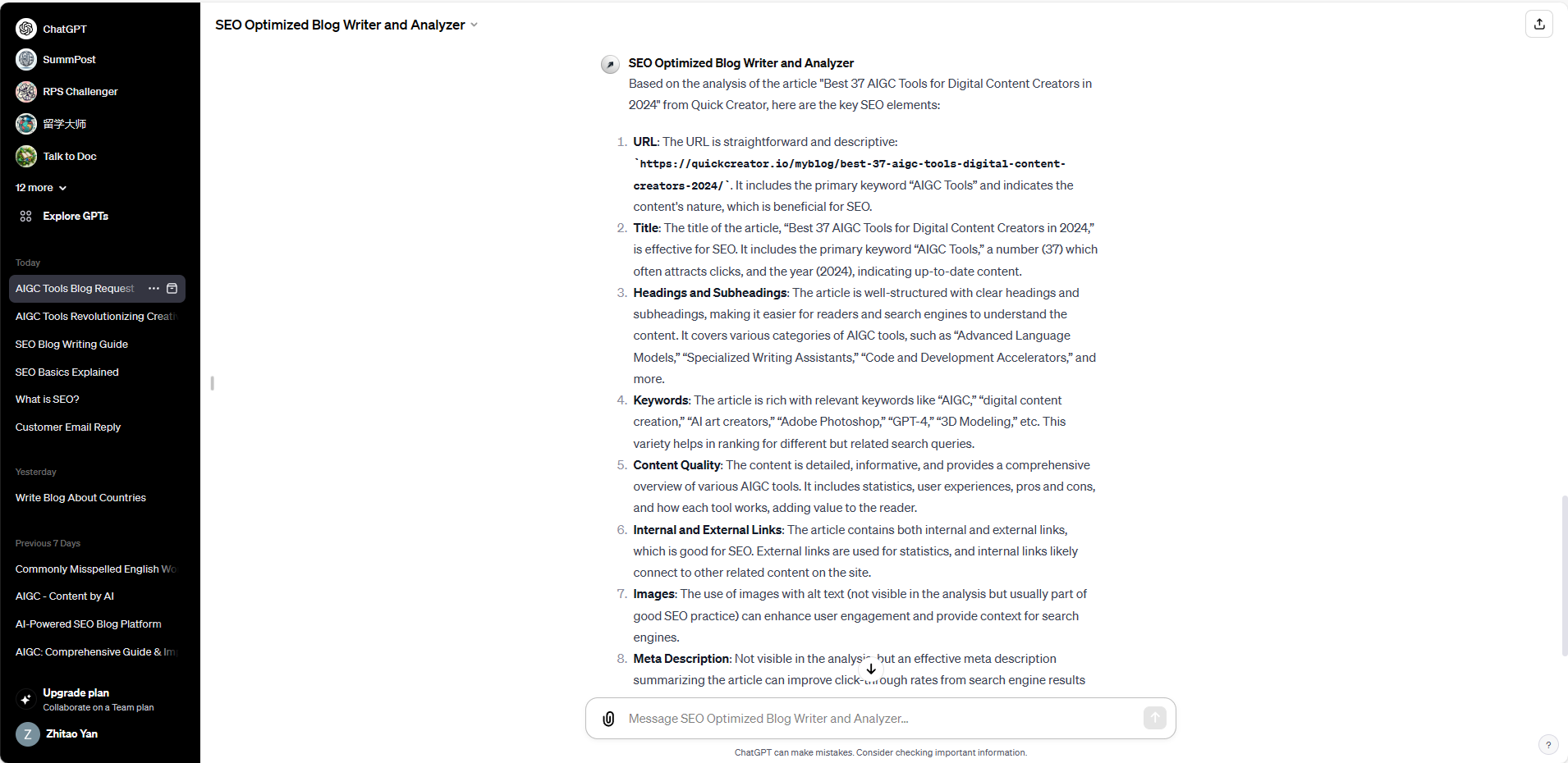
The overall analysis is very good, but there is clearly an issue with the analysis of the meta description, because the article does have meta description information.

No. 5 Write For me

Write For Me is a writing assistant GPTS that can be tasked to write different types of articles with specified word counts. I decided to also have it write an article related to 'AIGC Tools'.
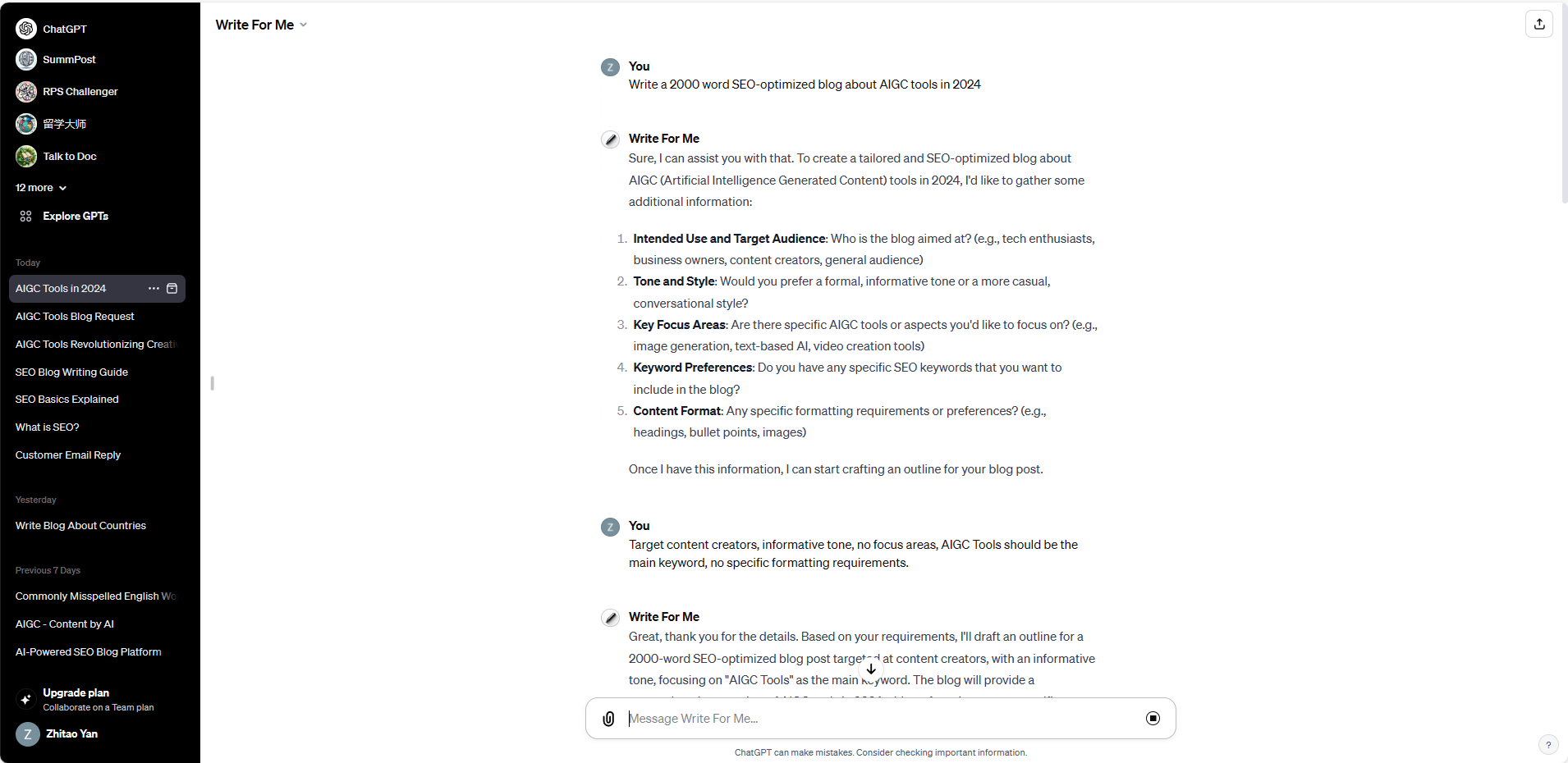
This tool uses a conversational guidance approach to generate articles. First I requested it to write the article I wanted, and it asked questions regarding target audience, tone, field, keywords etc. Then it generated an outline.
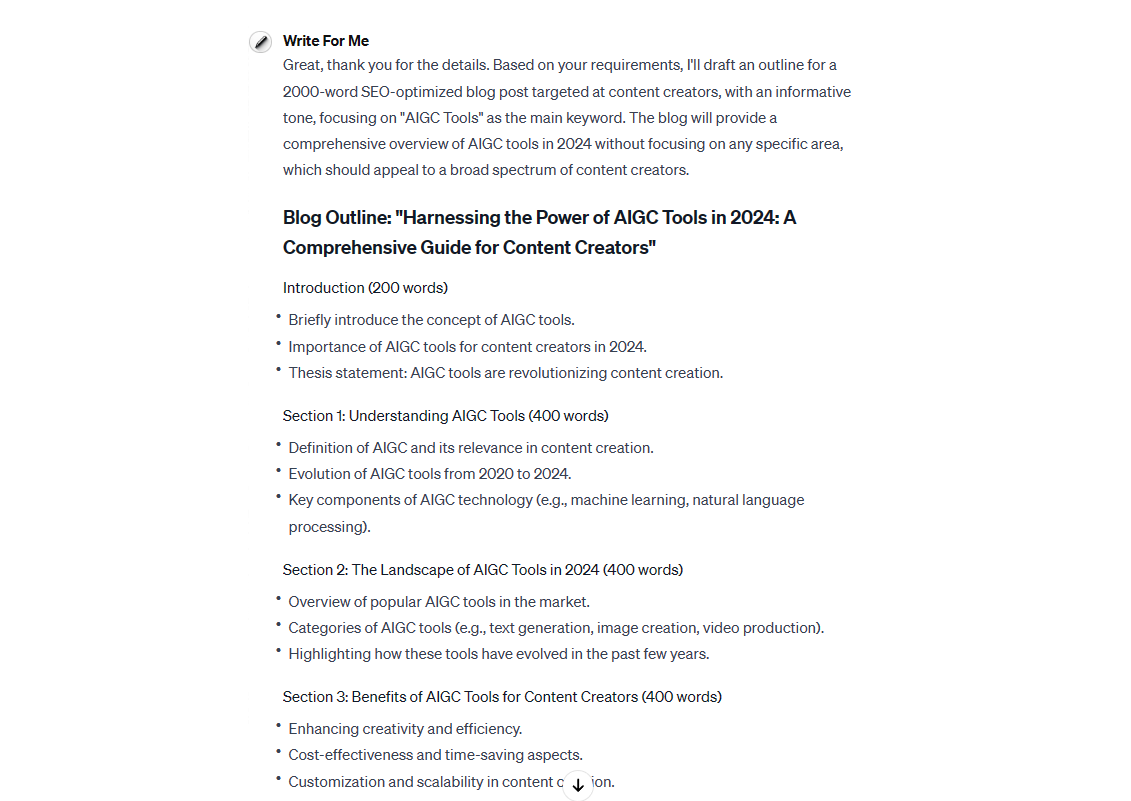
After the outline is generated, it asks if you are satisfied with the outline. If you are, you can have it start generating the content.

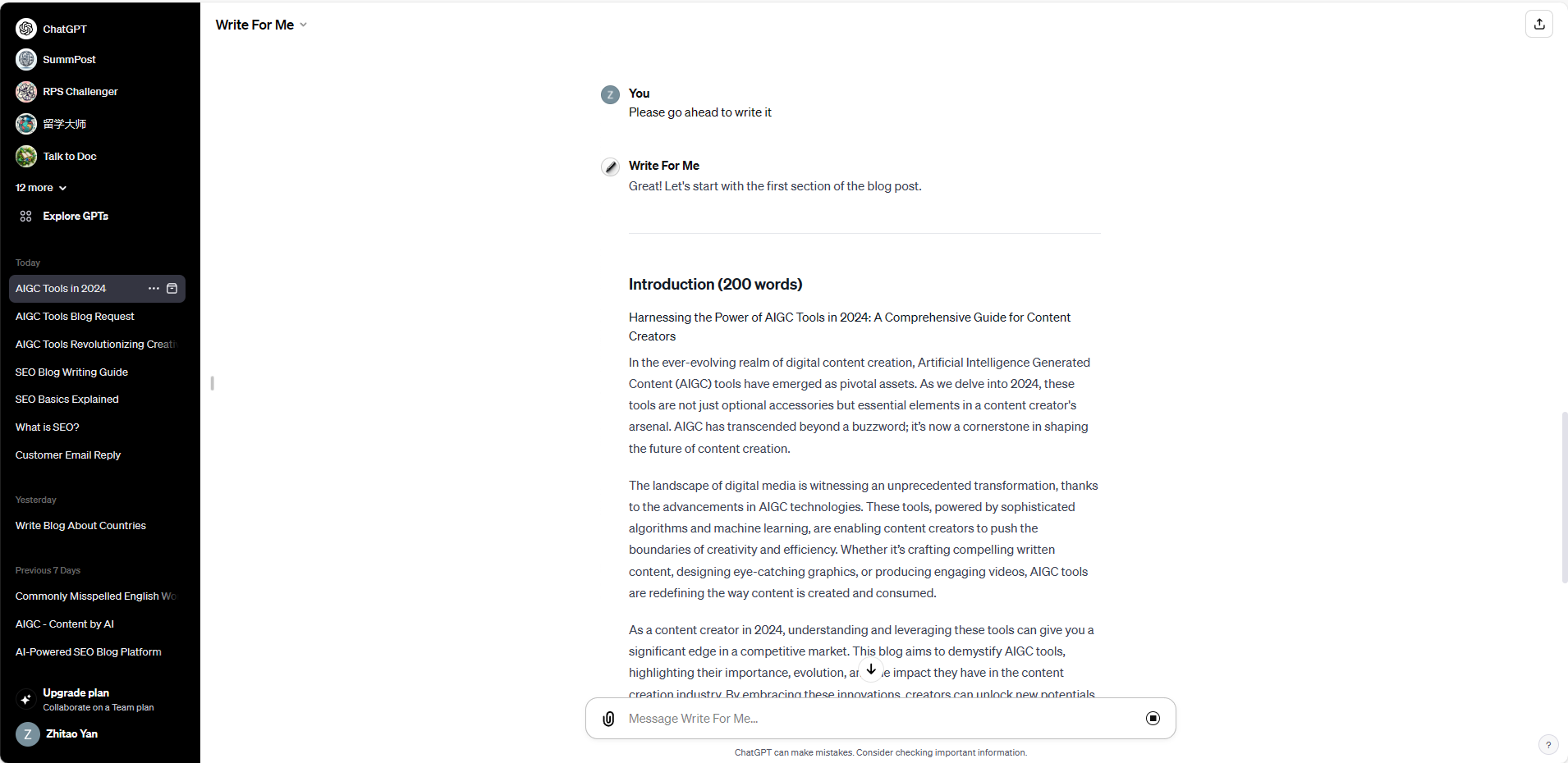
outline. After generating each section, it asks if you want to modify it or continue.
The entire article is written meeting the word count requirements. The overall content is decent - although there are no examples, it covers the perspectives needed for a blog article. It can be considered a publishable SEO blog article, although somewhat inflated.
In summary, for long-form writing needs, this GPTS can satisfy the requirements to generate lengthy text. However, since the content is fully from GPT, the entire piece lacks vibrance, only providing viewpoints without sufficient supporting substance.
No. 6 Humanizer Pro
This is another GPTS for humanize rewriting, the same as the top ranked one. We will use the same content to evaluate it.
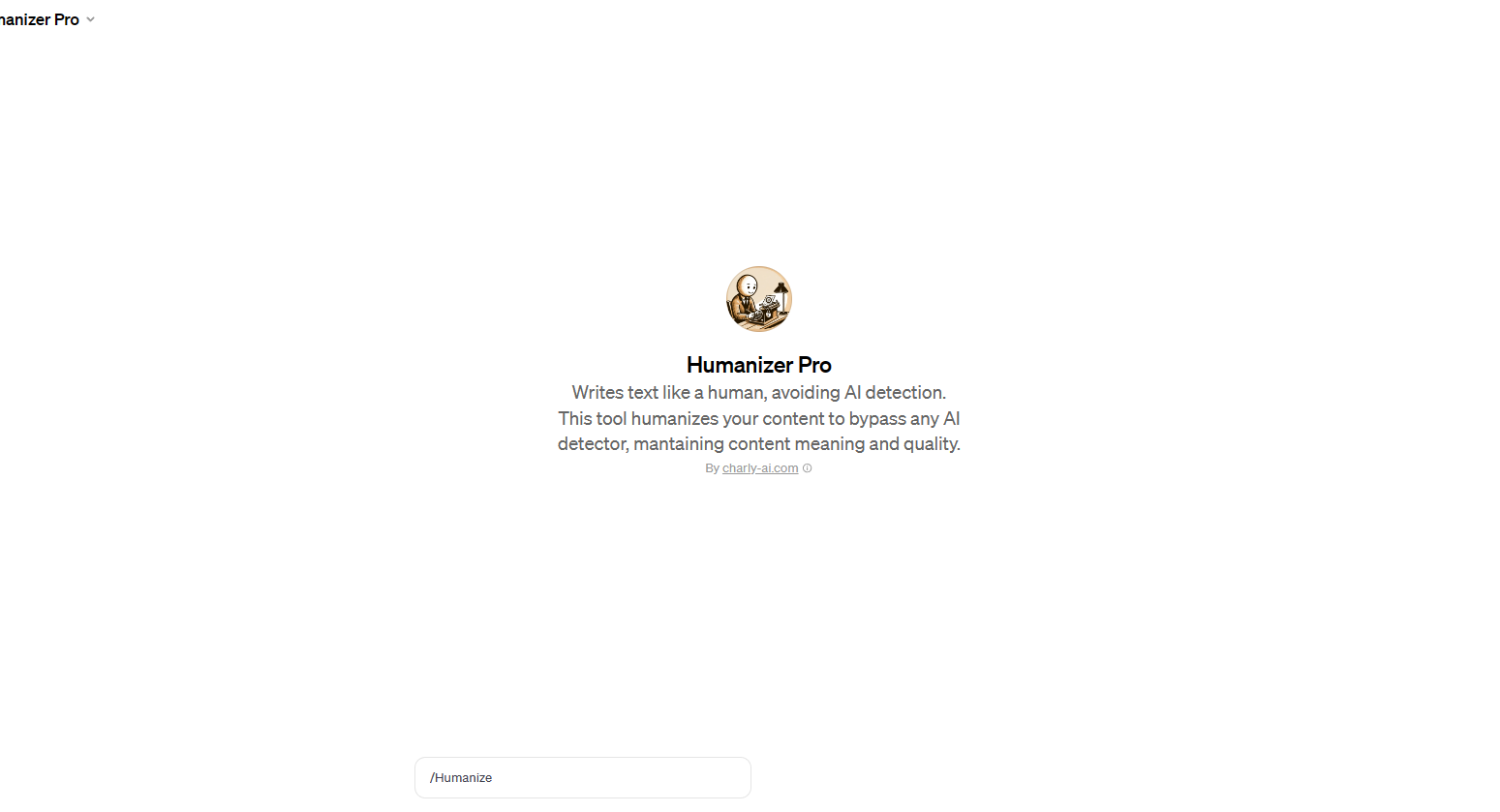
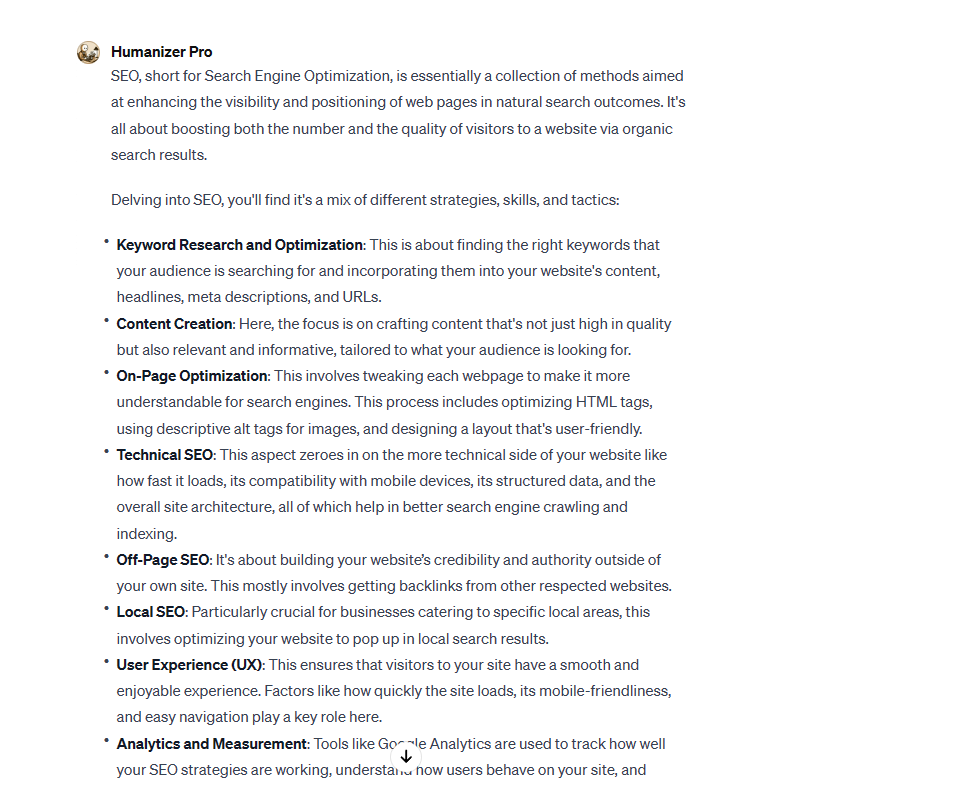
Let's do the AI detection using gptzero.
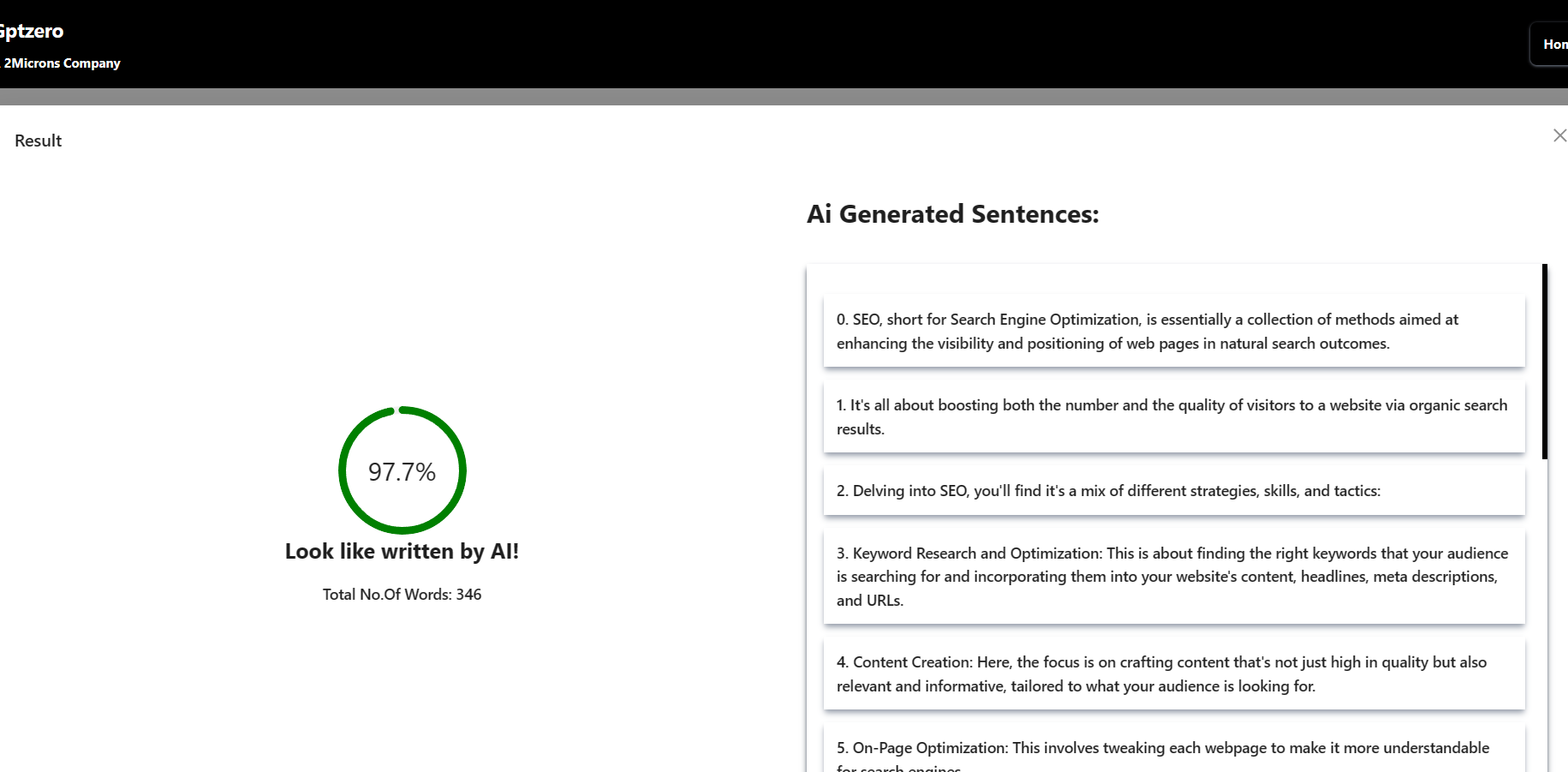
The test results show a very high AI value, and from the perspective of reading experience, the article is not as good as the original content. Therefore, although there is a high demand for such tools, whether they can effectively solve the problem remains a question.
Conclusion
GPTs Store has just been launched, and it is said that over 3 million GPTs have already been released. Looking at the top-ranked GPTs in the writing category, the overall quality seems quite average. It's evident that many people are just staking their claims. As for how GPTs Store will enable users to find options that suit them, it currently seems a bit like the traditional App Store's search and category recommendation approach.
However, I believe that on an AI platform, native AI GPTs should not be presented to users in this way. A more suitable method would be something akin to a recommendation system. This would involve users interacting with and evaluating these recommended GPTs to better identify the superior ones.
Currently, ChatGPT only has a few million paying Plus users, and now there are 3 million GPTs, which clearly indicates a situation of supply exceeding demand. The reason is that the threshold for creating GPTs is low enough to result in a mixed quality. Let's look forward to OpenAI's next moves and see whether GPTs can become akin to the Apple App Store era for the iPhone.

